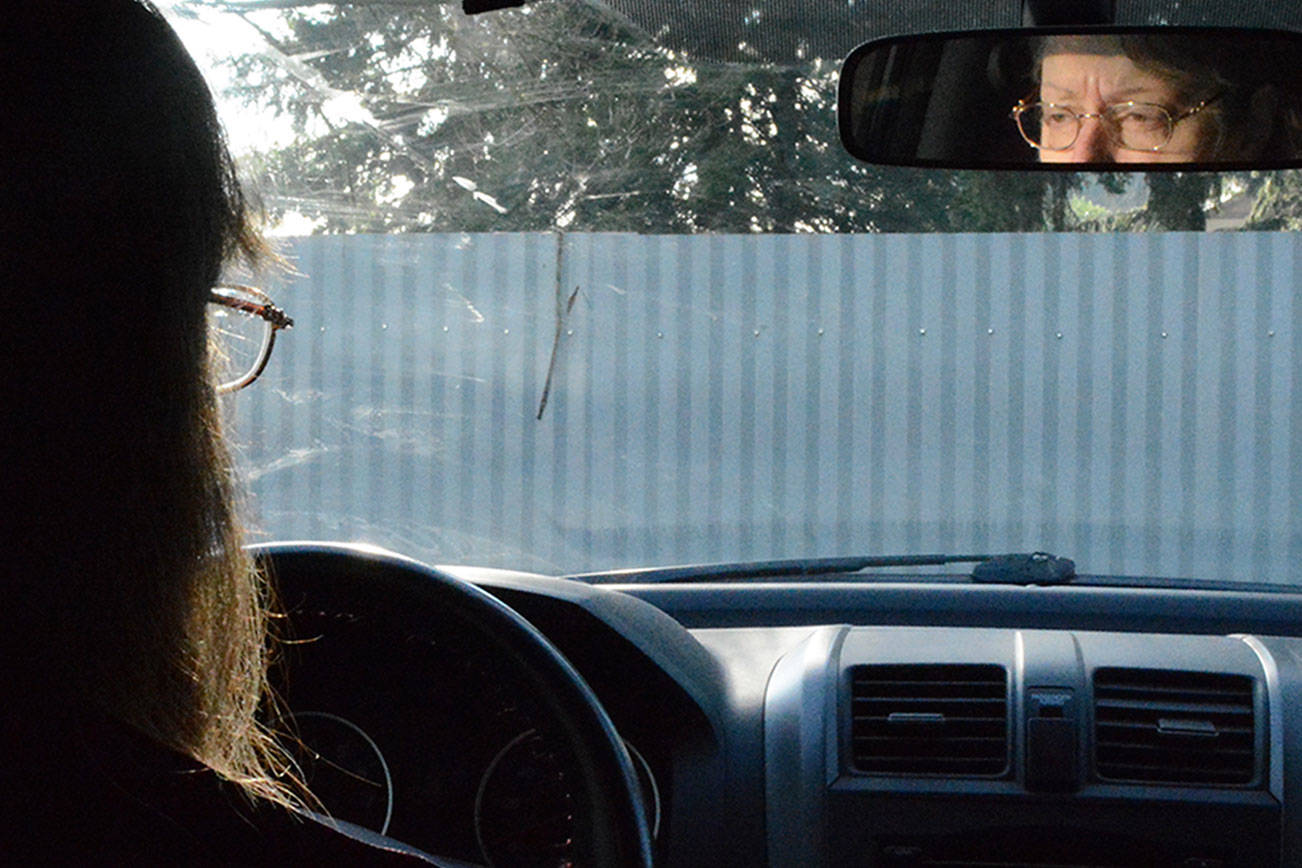MARYSVILLE – Beverly Kazmi considers herself lucky that she didn’t need someone to drive her to her cancer treatments.
She knows others are not as fortunate. That’s why she, Karen Critz of Tulalip and others donate time to do just that.
Kazmi’s not just a driver “getting them there. It’s lifesaving because they couldn’t get there otherwise.”
Jerri Wood, manager of the American Cancer Society’s Road to Recovery program, says they need more drivers. If interested call 425-404-2199. Kazmi said the system is flexible and could fit into almost anyone’s schedule.
Kazmi found a lump in her breast in 2010, and she went to a walk-in clinic that Memorial Day Weekend. “It was like a speeding bullet train: doctors, tests, biopsies – so much happened so quickly, it was incredible – enough to get your head spinning.”
Kazmi was stunned because her family history has rampant heart disease, but not cancer. The cancer was aggressive, but had not spread to the ducts, “Where they would have multiplied like rabbits.”
She was told it was Stage 1, but wasn’t sure if that was good or bad. “It was a blessing it wasn’t in the lymph nodes – that’s the freeway to everywhere,” she said.
Kazmi had neighbors and her husband to drive her to appointments for a year. She said everyone’s treatment is different. “They look at the chemistry of your body. They make up your drug; it is custom-made for you. The lab mixes it up, and the drugs are tweaked according to your numbers.”
She developed relationships with other patients and was impressed with how they, along with staff, encouraged each other at the Providence cancer partnership in Everett. “I met so many people dealing with so much worse than I was,” she said.
When her treatment concluded, Wood talked her into volunteering. She worked as a patient navigator. “I got to love on them one-on-one. They would try on wigs and walk out with a smile. They were looking for that one person who would just listen to them. I would understand totally where they were.”
Time became a problem, so Wood got her hooked on the Road to Recovering program instead. Kizmi likes it because she gets to decide when and where she can volunteer. A computer program online shows who needs a ride, at what time and where. So she can help as much or as little as she can.
“The beauty of the program is you’re not locked into it. You can do it at your leisure.”
As a cancer survivor, Kazmi said she probably goes beyond what most drivers do. She actually supports many of her patients while they are being treated. “I go with them. I do it as a friend. It helps them tolerate it to have people accompany them,” she said.
She said patients have all types of personalities. “I’m neutral,” she said. “They can rant. I love being able to do that for them.”
Sometimes she tells them she went through cancer treatments, too. “They instantly look at me differently. I’m not just some weird, strange person picking them up. It gives us a bond instantly,” she said.
Kizmi said she seldom goes into detail. “It’s not about me, it’s about them,” she said. When it develops into a friendship she will look at the schedule and try to pick them up as many times as she can.
“It’s stability and comfort for them,” she said. “The journey is so unstable. It’s nice to have peace and comfort.” She said she used to be an introvert, but this has helped her come out of her shell. “I stepped out of my comfort zone. It’s such a good feeling to be there for them.”
Kizmi said the affects of cancer treatment can be hard on a person’s body. It can get to her. “Sometimes I sit and cry. I can’t drive for a while.”
For Critz, she was looking for a place to volunteer in retirement. Her sister is an oncology nurse, so she became interested that way.
After talking to Wood, she immediately liked her and was convinced to volunteer. Critz normally drives patients about three times a week.
But she’s not now because a friend and a niece both have cancer so she’s driving them instead. But when she picked up patients through the call system, “You get to the point you’re not just taking someone, you’re taking a friend.”
She drove one person to treatments for 3 1/2 years. Critz is popular because she will drive patients to cancer treatments in Seattle, which is where she grew up.
“I’m not scared like the rest” of Seattle, she said, laughing.
Critz said one woman she drove recently died.
“It was a blessing to know her. You’re special friends when you walk this path with somebody.” She hopes more people would volunteer.
“I wish more people knew about us. We need a lot more help. It’s the last thing they should have to worry about,” she said of cancer patients needing a ride.
She said while there are some sad things about it, “The program is more positive than negative.” Critz said she gets back more than she gives. “I’m blessed to have found this.”


